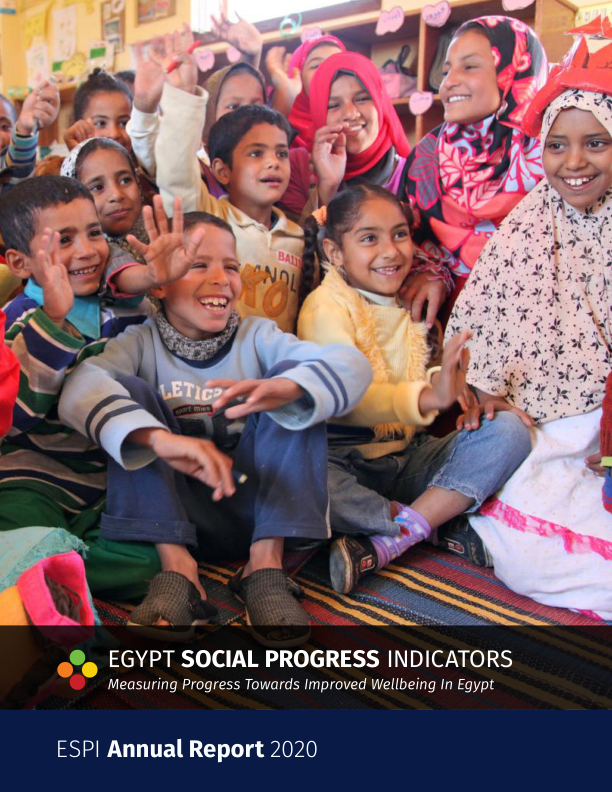The second edition of Egypt Social Progress Indicators (ESPI) Annual Report, covering the year 2020, is now out. The independent, systematic review of socioeconomic development in Egypt was carried out by CESR and allies, and found that there has been weak progress and many regressions in Egypt’s social and economic rights since the inaugural measurement in 2018.
Of the 38 indicators included in the annual report, there was only one ‘Good Progress’ score in respect of the effective corporate tax rate. The most frequent score was ‘Weak Progress’, which was assigned to a variety of indicators from performance in ‘combatting female genital mutilation’ to reducing the ‘percentage of the population living under the poverty line’. There were some brighter spots in which the Egyptian government has made ‘Partial Progress’, primarily across the health, labor and education indicator sets. However, no urbanization indicators scored higher than ‘Weak Progress’.
The ESPI project seeks to understand Egypt’s development in a holistic manner that goes beyond traditional measurements like the Gross Domestic Product (GDP). Instead, ESPI uses CESR’s OPERA framework to demonstrate that human rights can provide concrete criteria for evaluating government policies. By going beyond classic macroeconomic indicators, ESPI gives a more comprehensive picture of the experience of those that are left behind and who often share the heaviest burdens of reforms in times of economic crises.
